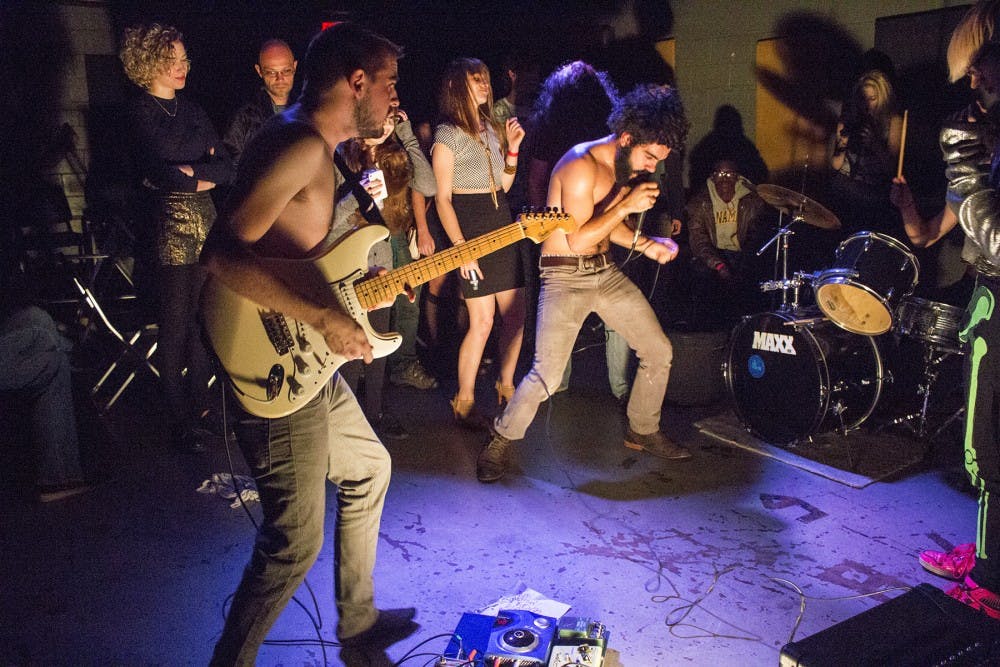Halloween wasn’t about costumes or candy for Conundrum Music Hall in West Columbia last fall.
Instead, the holiday marked something sober — the closing of the music hall due to unmanageable financial strains.
Beginning in 2011, Conundrum filled a special place in the Columbia music scene. The music hall served as Columbia’s most intimate venue — a place where musicians and listeners could experiment and share in the entire performance process. Tom Law, the mind behind the entire Conundrum endeavor and also the venue’s owner, conceived of the idea for the music hall in 2009, after working in other realms of the Columbia music scene.
“I’d been independently promoting shows around town and observing that there really wasn’t a good listening room for music around here,” Law said. “Not realizing quite how much money and effort would be involved in getting such a thing going, I decided to try opening one myself.”
Although a risky brainchild to bring to fruition, Law’s “listening room” definitely made its mark before its closing on Saturday. No other music venue in Columbia boasted the close-knit atmosphere of Conundrum, or possessed its ability to showcase such niche-specific musicians.
“We catered to alternative music, and other arts, that other venues couldn’t really handle profitably,” Law said. “At one point I actually considered the motto ‘a home for unpopular music.’”
Conundrum was born to fill the need for a venue that could give audiences the opportunity to experience unconventional art. The music hall was a mouthpiece for alternative artists of all types — musicians and otherwise.
Cecil Decker had been a sound engineer for Conundrum since its opening and agreed that it was a center for overlooked music.
“Conundrum opened because nowhere else was programming non-mainstream music, everything left-of-center,” Decker said. “Having a home for that community was great, and it expanded into all the arts.”
Conundrum focused on embracing the lesser-known side of the arts scene, and this included hosting student artists from college and high school campuses, including performers from USC.
“It wasn’t exactly a rule or anything, but one thing we always loved to do was let new, ‘untested’ bands play shows,” Decker said. “A lot of high school and college bands that may have only been doing house shows and the occasional NBT/bar gig got a stage.”
The music hall’s community involvement extended beyond students and even touched the lives and careers of USC professors, meshing Conundrum fully with the local life of the city of Columbia and USC. A frequent Conundrum performer was Greg Stuart, USC Assistant Professor of Experimental Music and Music Literature.
“I was always pleased to host Greg Stuart’s concerts,” Law said. “I think my favorite one was when he brought in maybe 25 of his students, mostly non-music majors who set up around the room and performed on found objects, reading from graphic scores.”
Unique concerts like this were Conundrum’s specialty, and these creative experiences are one of the greatest losses felt by the venue’s closing.
“There will be no beacon for strange and unusual musical experiences,” Decker said. “Conundrum has actually become known nationally and internationally as a place to play.”
However, Conundrum’s offering of a stage for the unknown gave the music hall a unique position in Columbia — a position that inspired an entire network of people to gather around Conundrum. This community rallied around the music hall during its closing and is currently fighting to reopen it. A crowdfunding campaign has been started to attempt to buy out Conundrum’s lease. If this is achieved, the music hall will open once again, this time not simply as a music hall, but as a community arts center. It may be that Conundrum isn’t permanently stopping the music at all — but rather simply pressing pause.
“I have so many memories of shows that radically changed my brain about what musical performance even is, as well as shows where one person played a guitar or piano and achingly transformed their experiences into a song,” Decker said. “I hope that I don’t have to miss anything for long.”

